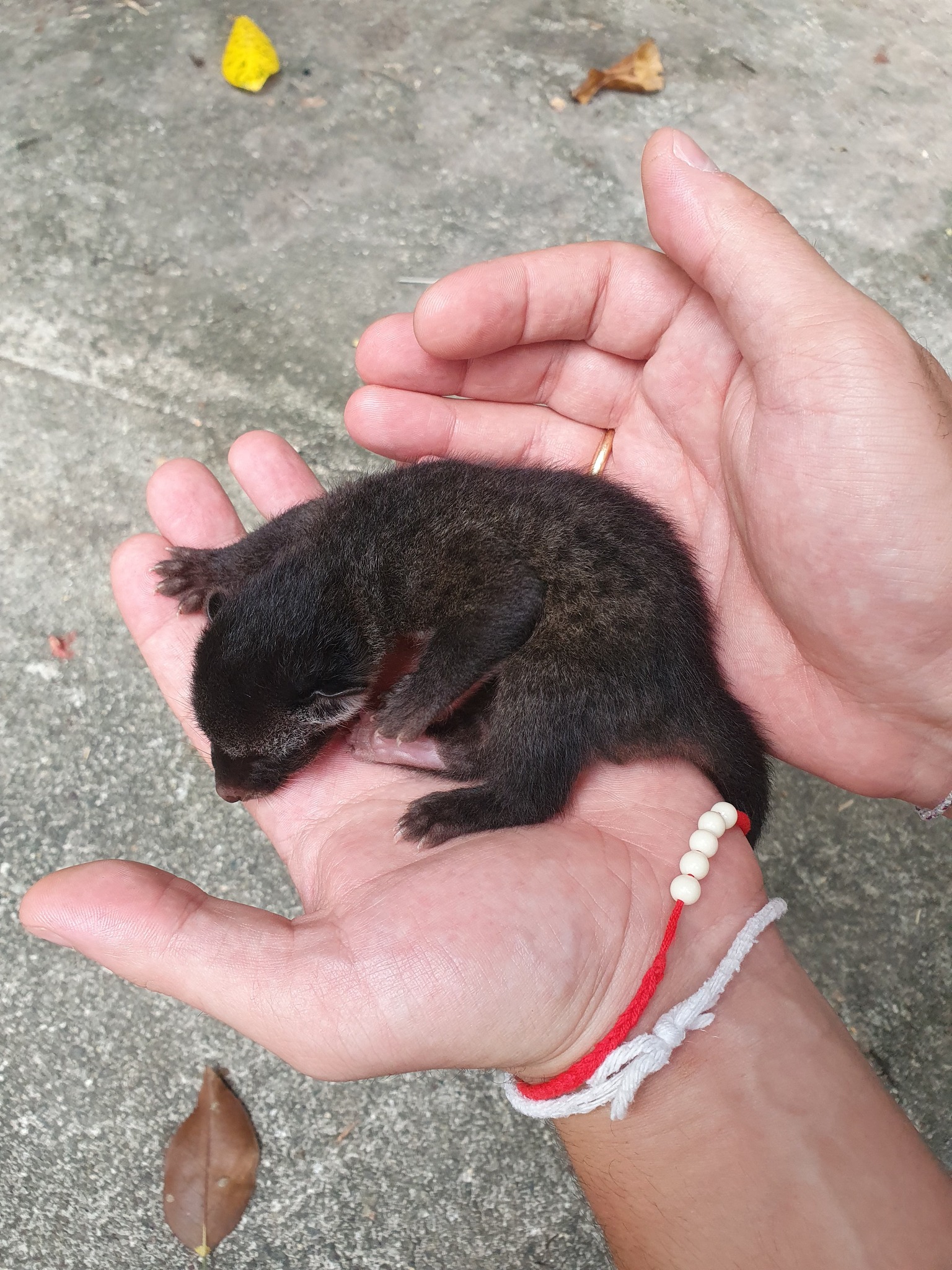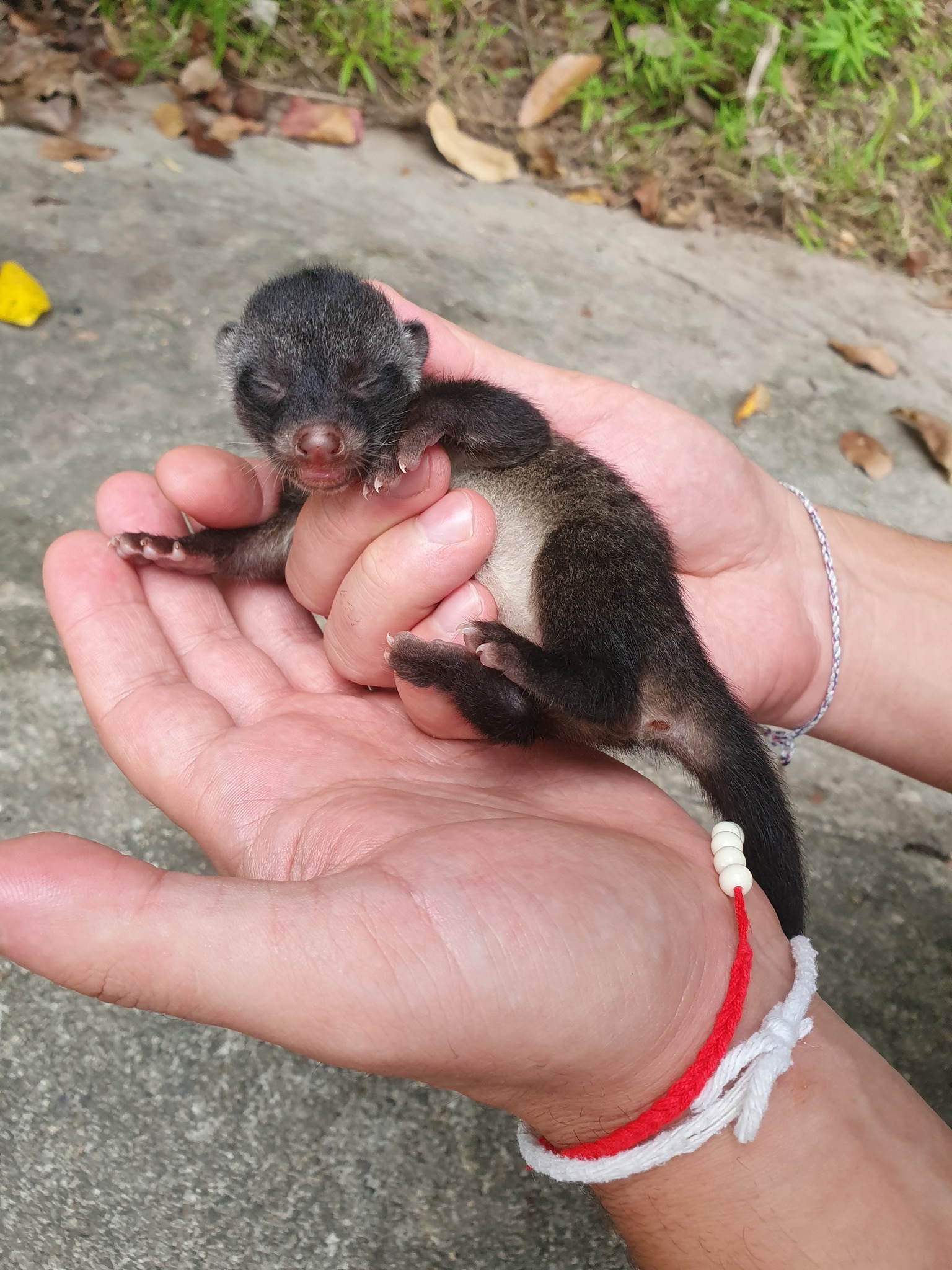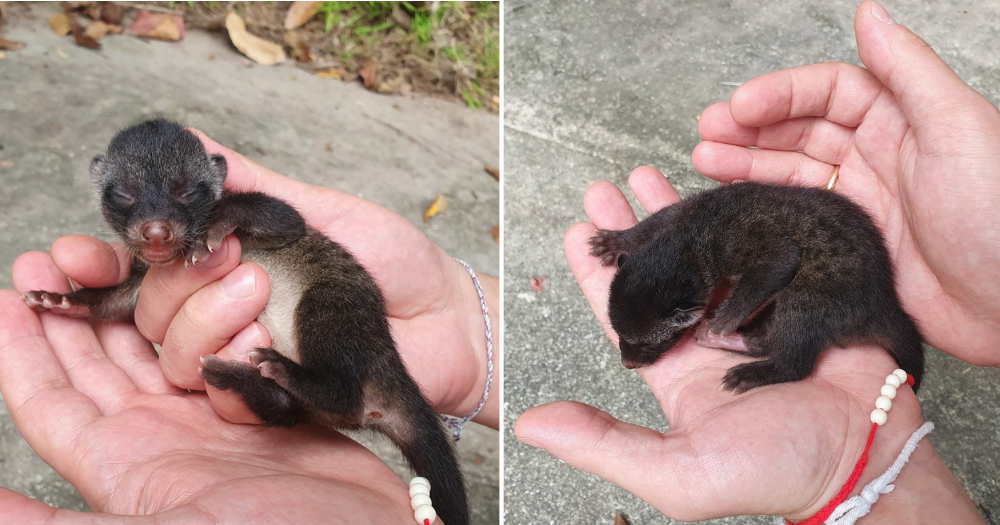Follow us on Telegram for the latest updates: https://t.me/mothershipsg
A baby civet was found squeaking helplessly at Holland Road on Jan. 15.
When it was discovered by passers-by at around 5pm, the civet was covered in red ants and was unaccompanied.
One of the passers-by, Tiara Ardelia, shared her encounter with this adorable mammal on Facebook after the civet was taken by the National Parks Board (NParks).
 Photo by Tiara Ardelia.
Photo by Tiara Ardelia.
 Photo by Tiara Ardelia.
Photo by Tiara Ardelia.
Waited for the parent civet to come
Ardelia said they initially contacted wildlife rescue group Acres and followed their instructions to leave the young civet where it was found.
According to the advisory by NParks, anyone who finds a baby civet should leave it alone and avoid picking it up. If the mother civet is around, she will respond to the baby's cries and attend to it.
However, if people swarm around the baby civet, the mother may end up abandoning her offspring.
As such, the baby civet was left underneath a fruit tree where it was found as the kindhearted passers-by waited for the parent to return.
The reunion did not happen, sadly.
Given the timing when the baby civet was found and the fact that it was covered in red ants, some commenters speculated that the baby was abandoned by its parent.
The baby civet was eventually picked up by NParks staff and will be brought to the vet, Ardelia updated.
Nocturnal creatures
Civets are nocturnal creatures so it is unusual to see them during day time as they are more active and forage at night.
However, sightings of civets in the day were reported before.
Here are some past examples:
Civets native to Singapore
Civets are native to Singapore and are also known as civet cats, Toddy cats, or musang in Malay.
One particular species, the Common Palm Civet, can be found on the island.
Contrary to their name, they are not cats and are instead more closely related to mongooses.
The adults may look slightly similar to raccoons due to the dark band across their face.
They usually feed on fruits, insects and small animals.
What to do when you see a civet
Here's what you should do if you ever encounter a civet, according to NParks' advisory:
1. Do not be alarmed as the civets are shy and will try to stay out of sight so just leave them alone. If you are really interested, you can watch them from a distance and do not try to corner or chase them.
2. Civets may eat leftover cat food that is left out in the open, so do keep your pets' food indoor if civets are sighted near your neighbourhood.
3. If you find baby civets in your property, leave them alone as the mother will respond to them when they cry. The baby civets will start venturing out within two or three months after birth. After that, they will follow their mother to forage and will move out of your property eventually.
If you need help, here's a 24-hour hotline to NParks' Animal Response Centre: 1800 476 1600.
You can also contact 24-hour Acres wildlife rescue hotline at 9783 7782.
All images by Tiara Ardelia
If you like what you read, follow us on Facebook, Instagram, Twitter and Telegram to get the latest updates.

